Wanderers vs The Royal Engineers: The beginning of football’s oldest competition
Today, 150 years after the first ever FA Cup final, Mick O'Hare tells the story of the almost unrecognisable match that marked the beginning of the competition we still know and love

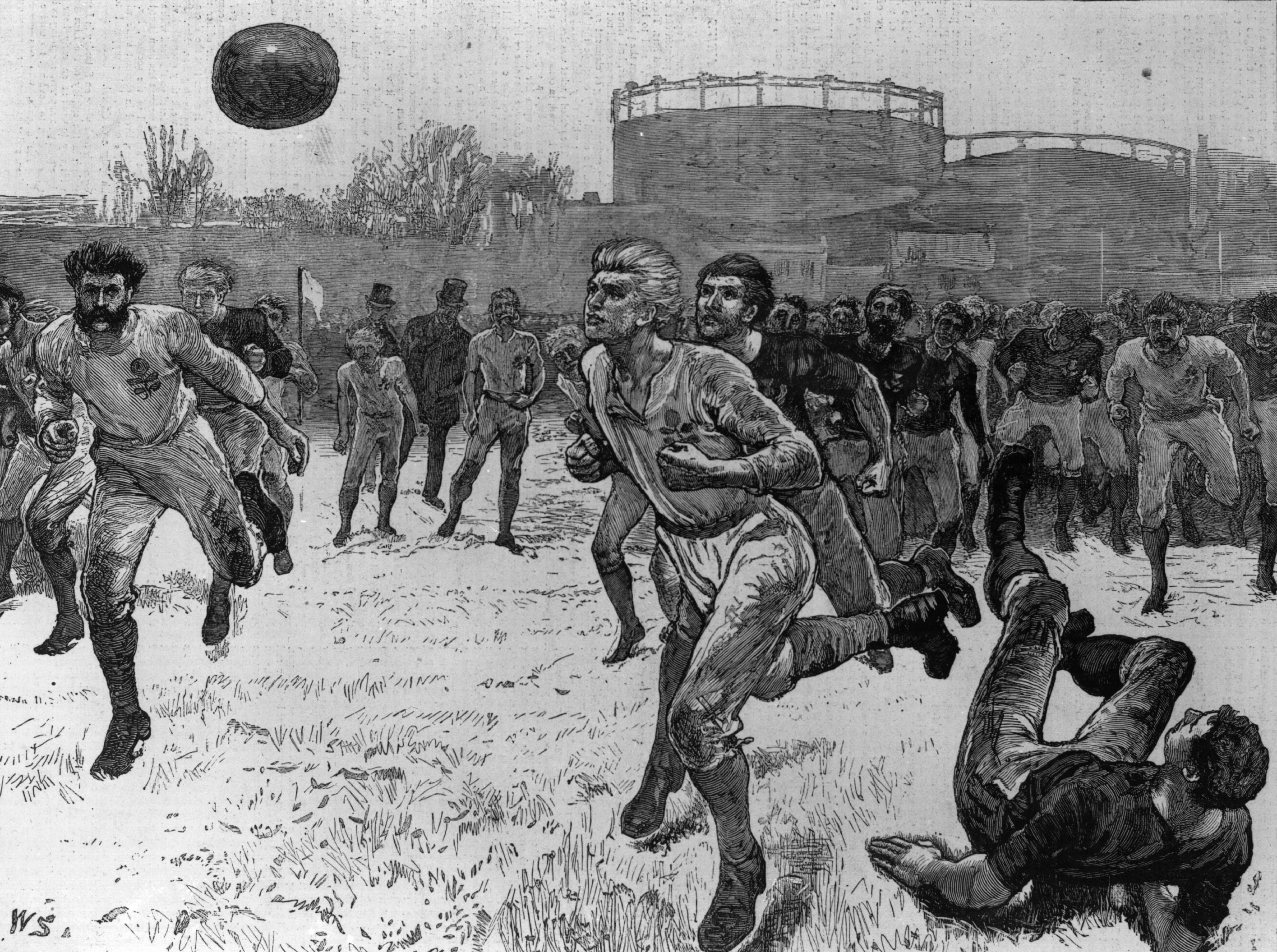
Arsenal goalkeeper Geoff Barnett threw himself to the left, but the ball was out of reach. Allan Clarke’s header from near the penalty spot nestled in the back of the net and BBC commentator David Coleman uttered his trademark “one-nil”. The team everyone loved to hate, Leeds United, took victory in the 1972 FA Cup Final, on the competition’s 100th anniversary.
For supporters of a certain vintage that centenary cup final seems like only yesterday. The hoo-hah surrounding the match consumed media outlets as England’s two leading clubs won through to the decider of football’s oldest competition. Both terrestrial television companies – for there were only two, BBC and ITV – started their coverage in mid-morning, preparing for the 3pm kick off. Commemorative coins were issued, collector’s cards of erstwhile champions were printed and exchanged by school kids, previous winning goal scorers and managers were dragged on to radio for interviews, special supplements appeared in the newspapers, and the match was shown all over the world. The FA Cup final was England’s greatest sporting occasion bar none, and everybody tuned in to watch. The curtains in front rooms were drawn, lest the sunlight spoil the images on new-fangled colour TVs, off-licences were emptied of all their beer and the streets devoid of cars and pedestrians.
Yet, although for so many 60-something football fans that weekend will be impinged on their memories, they will also be acutely aware it was an entirely different era for their sport. The FA Cup today is no longer the premier competition in England, the once-acclaimed “magic of the cup” has been diminishing ever more rapidly since the turn of the century. Clubs and their managers – indeed their accountants – know that qualification for the European Champions League or avoiding relegation from the Premiership take precedence over a frivolous knockout competition that carries fewer rewards. Whereas winning cup matches was once a priority, nowadays lesser members of expensive playing squads are often trundled out to fulfil fixtures in the earlier rounds, with success sometimes taken as a meagre bonus, other times even an inconvenience. So-called giant-killing, where a team from a lower division beats one from the Premiership, is now far more likely.
And although the final itself is still treated as a big day out and, should Liverpool, Chelsea or Manchester City qualify, their star players are finally wheeled on to the big stage, victory in the venerable competition does not come with the kudos it did when Leeds and Arsenal were playing in that centenary final of 1972.
This week marks the 150th anniversary of the very first final and if we are comparing eras, some attitudes that prevail towards the FA Cup today aren’t so very different to how they were back in the 19th century when the competition first kicked off. In 1972 the whole nation took notice, but in 1872 the FA Cup barely touched the national consciousness. Even some of the 15 clubs who entered couldn’t be bothered to fulfil their fixtures.
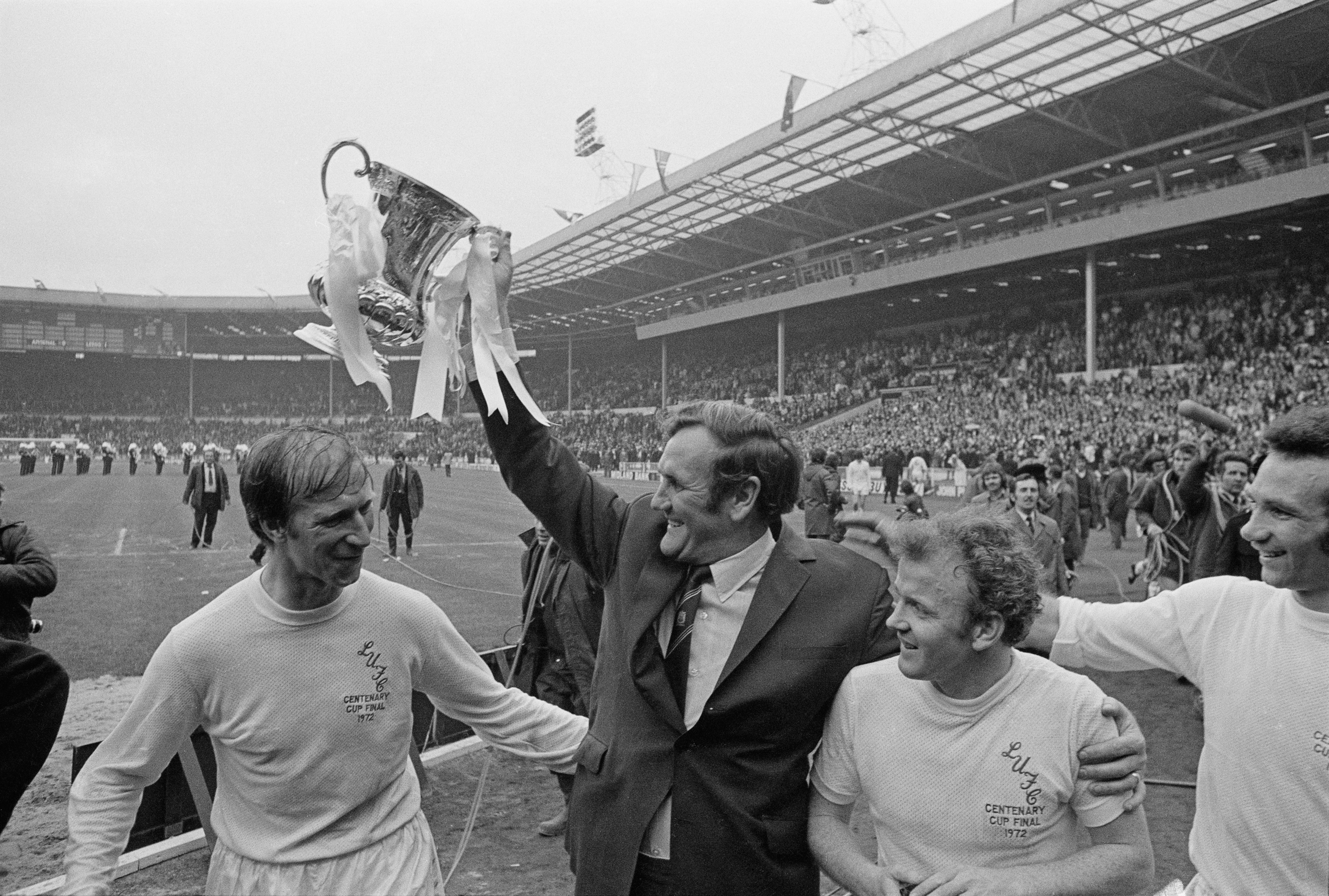
The Football Association – from which the FA Cup takes its name – was founded in 1863 to codify the laws of the game and to unify the various rules under which football was being played. In July 1871, the secretary of the FA, Charles W Alcock, an alumnus of Harrow School, proposed a new knockout competition based on the sporting competitions that had taken place between the houses at his school, stating “it is desirable that a Challenge Cup should be established in connection with the Association for which all clubs belonging to the Association should be invited to compete”.
Alcock was described as “a man of fine and commanding presence who had a happy knack of persuading people to his way”. And while there was no league competition at that point, knockout competitions were, for some reason, deemed acceptable, as was an entry fee of £1, affordable for wealthy schools but, according to complaints from smaller clubs, about a quarter of their yearly income.
So, on 11 November 1871, a mere 15 teams kicked off the world’s oldest football competition. Or, at least, 12 did. Reigate Priory and Harrow Chequers withdrew from the first round without playing – coincidentally in matches against the eventual finalists Wanderers and Royal Engineers – while Hampstead Heathens was awarded a bye. All but two of the teams were based in the south of England, but in that first round the pair were drawn against each other. Queens Park from Glasgow and Donington School from Lincolnshire couldn’t agree on a venue and so, rather strangely, both were advanced to the second round where they were drawn against each other again. At this point Donington promptly withdrew meaning Queen’s Park qualified for the third round without playing a match.
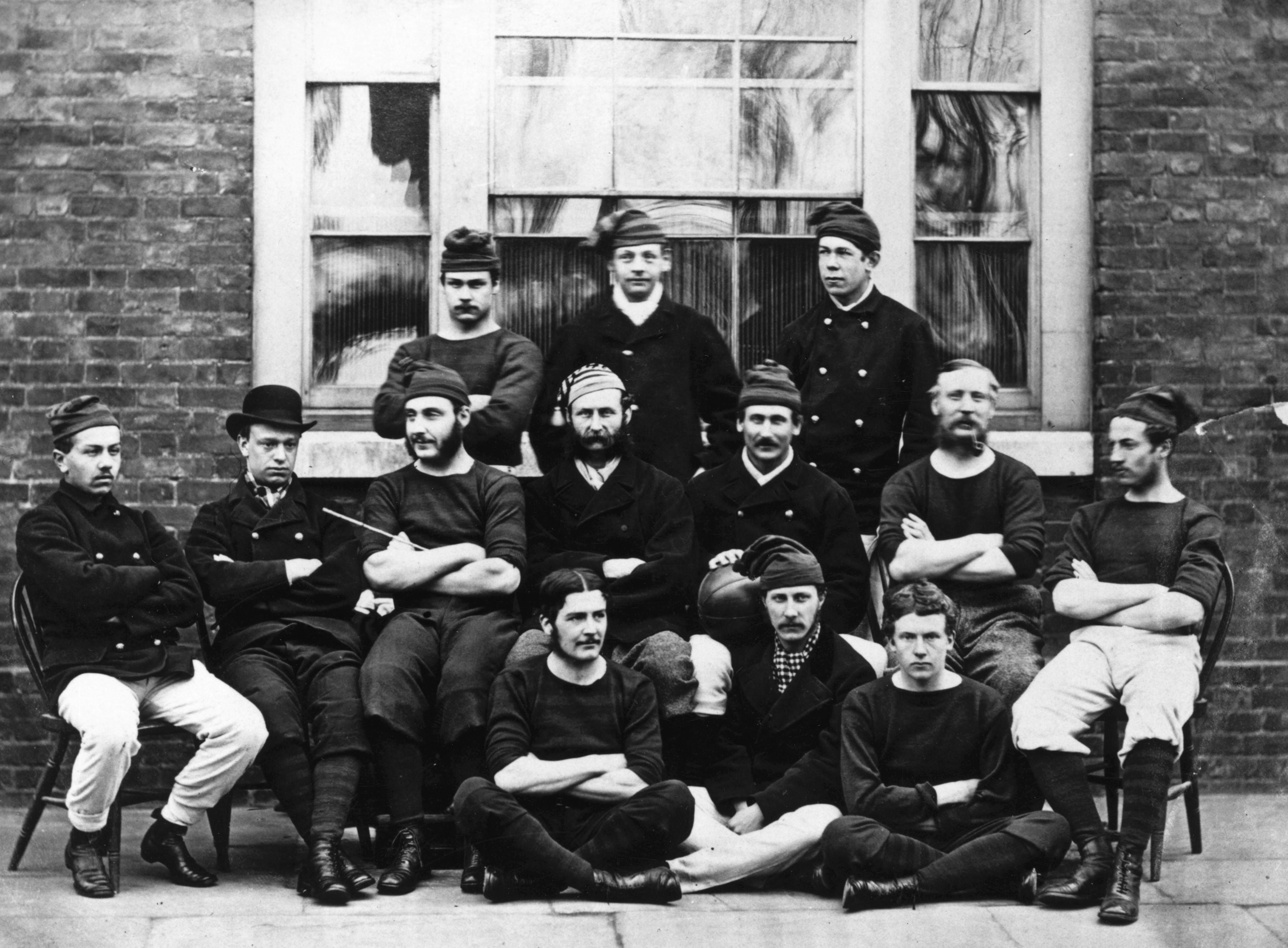
Joining them there were Wanderers, Royal Engineers, Crystal Palace and Hampstead Heathens. And while five teams created an odd number. It didn’t seem to trouble the organisers. Queens Park received a bye (they were now in the semi-finals, still without playing a game), Royal Engineers beat Hampstead and, after Wanderers drew 0-0 with Crystal Palace both were allowed through to the semi-finals which would take place at Kennington Oval cricket ground in London. Alcock was also the secretary of Surrey County Cricket Club which still plays its home matches at the Oval. Previously England had played Scotland there in the world’s first international football match in 1870.
The convolutions didn’t stop with the semi-finals. Both were drawn and went to replays but Queens Park couldn’t afford to travel back to London and Wanderers went through to the first ever final having won only one match. Meanwhile, Royal Engineers beat Crystal Palace 3-0. Of the 15 teams that set out in November 1871 only Queen’s Park and Royal Engineers are still extant. Crystal Palace was a totally different club to the team of the same name that currently plays in the Premiership.
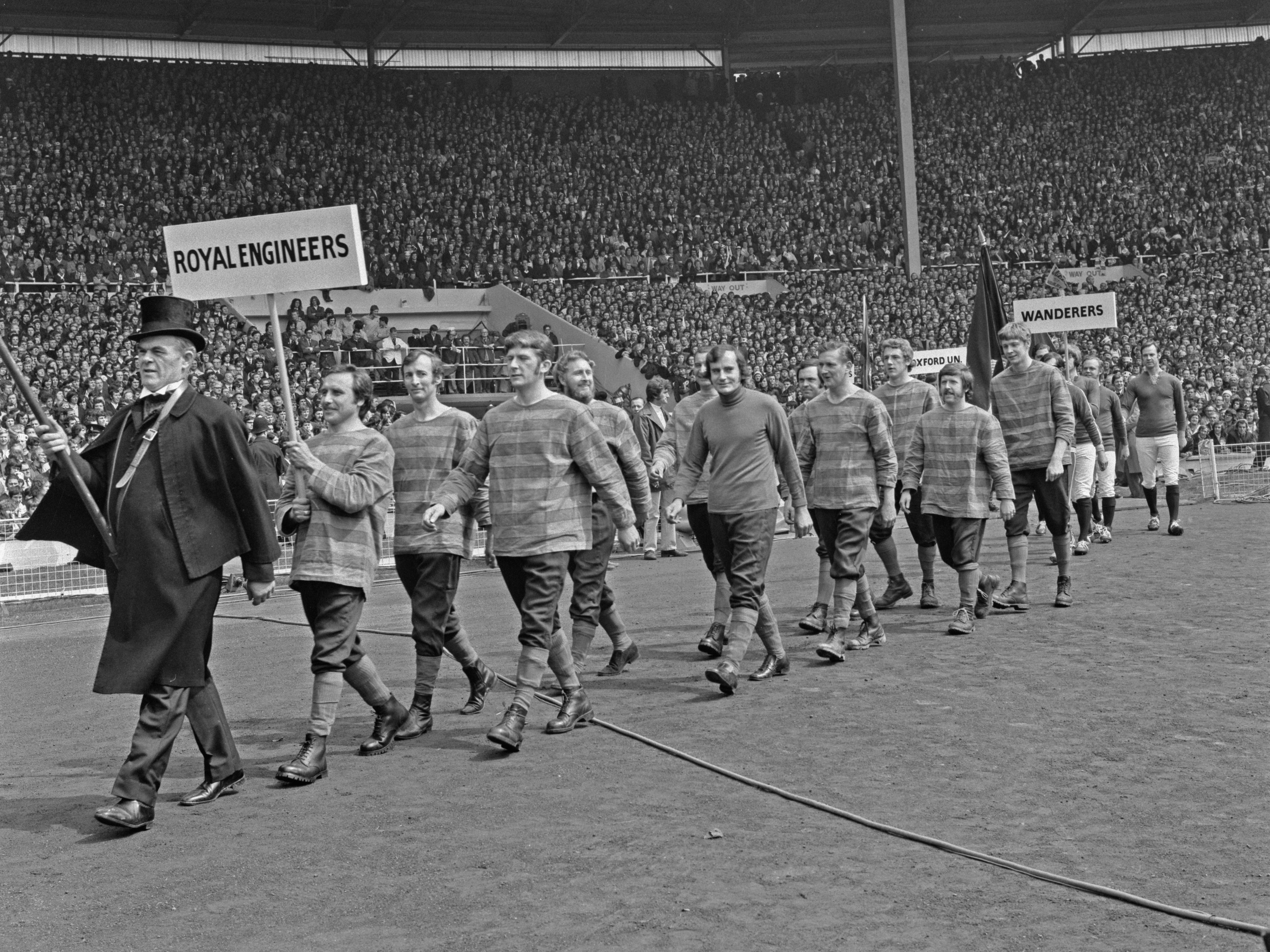
There was a bit of needle too between the opponents of that first final just as there would be 100 years later. The Leeds United team of 1972 had a reputation. Unpopular with everyone but their own supporters, their undoubted skill was tempered with a hinterland of aggression that frequently crossed the border into illegality. Intimidation was their stock in trade. Led by “fiery Scot” Billy Bremner backed up by fearsome centre-half Norman “bites yer legs” Hunter and the “uncompromising” Jack Charlton, they terrified opposition teams in England and across Europe. They were managed by Don Revie. When he left to become the manager of England he was replaced by the straight-talking – some might say foolhardy – Brian Clough who in his first speech to his new charges apparently told them to throw all their medals in the dustbin because “they were won by cheating”.
One hundred years earlier Wanderers too evoked antipathy among players and officials of other clubs, although for reasons perhaps connected with the other end of Britain’s social spectrum. Wanderers was effectively open only to those who had attended leading public schools and Oxbridge. As their name suggests they had no home ground of their own, playing only friendly matches at their opponents’ pitches and under various sets of rules.
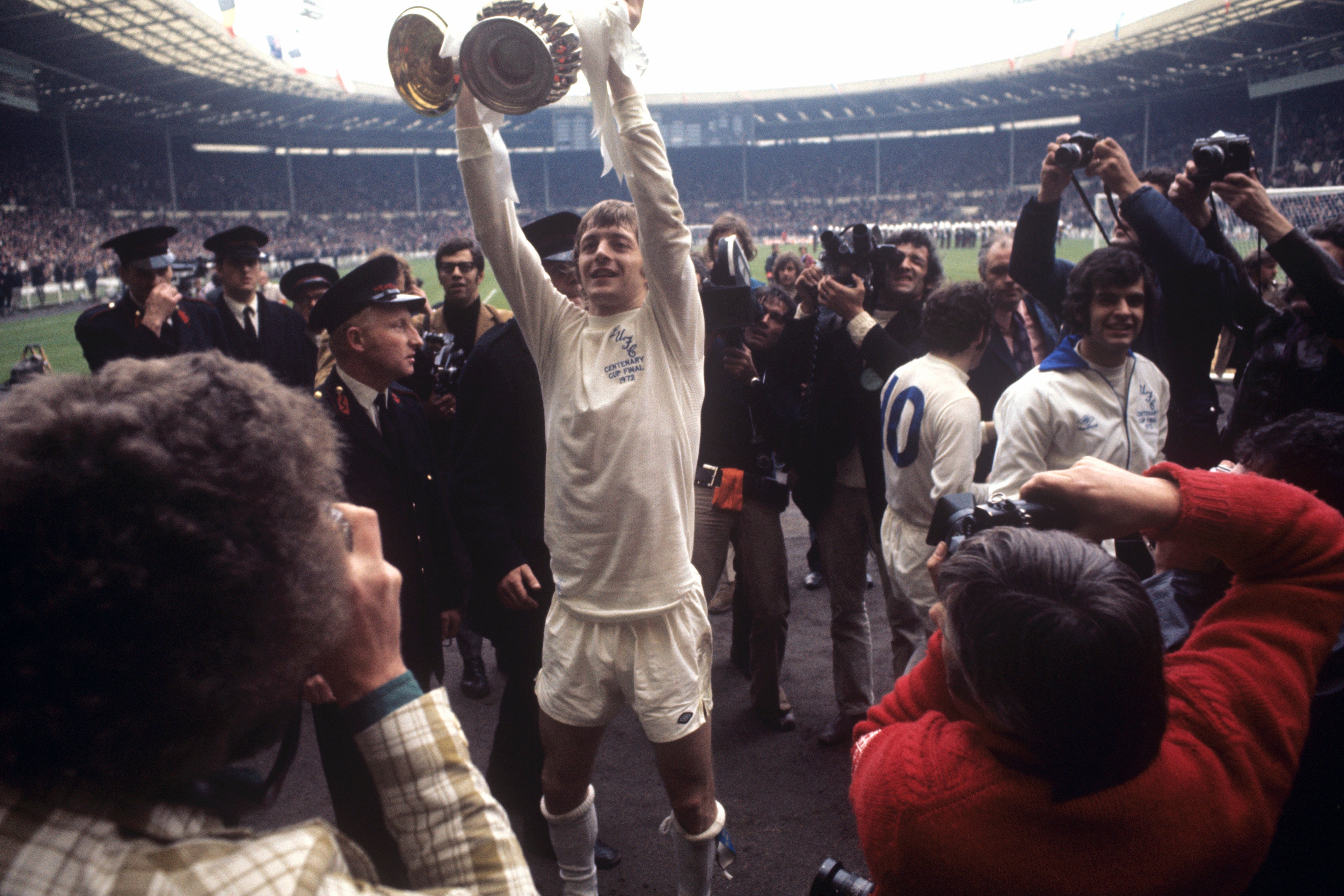
Most Wanderers players were Old Harrovians who wanted to carry on playing after they had left school. Alcock was one such, often known as the father of modern sport because of his association with the FA Cup but also as an administrator. He was a proponent of international competition in both football and cricket and captained England six times against Scotland at the former. He is also acknowledged as being the organiser of England’s first home cricket test match against Australia at the Oval in 1880 and went on to become a prolific sportswriter.
Another Wanderers player was the man often described as football’s first star, Old Etonian Arthur Fitzgerald Kinnaird, the 11th Lord Kinnaird. He would play in nine FA Cup Finals, a record that still stands. At the time Alcock was secretary of the FA, Kinnaird was its president, and so opposition clubs had every incentive to put one over on the mainly Oxbridge-educated cabal, which effectively ran the sport.
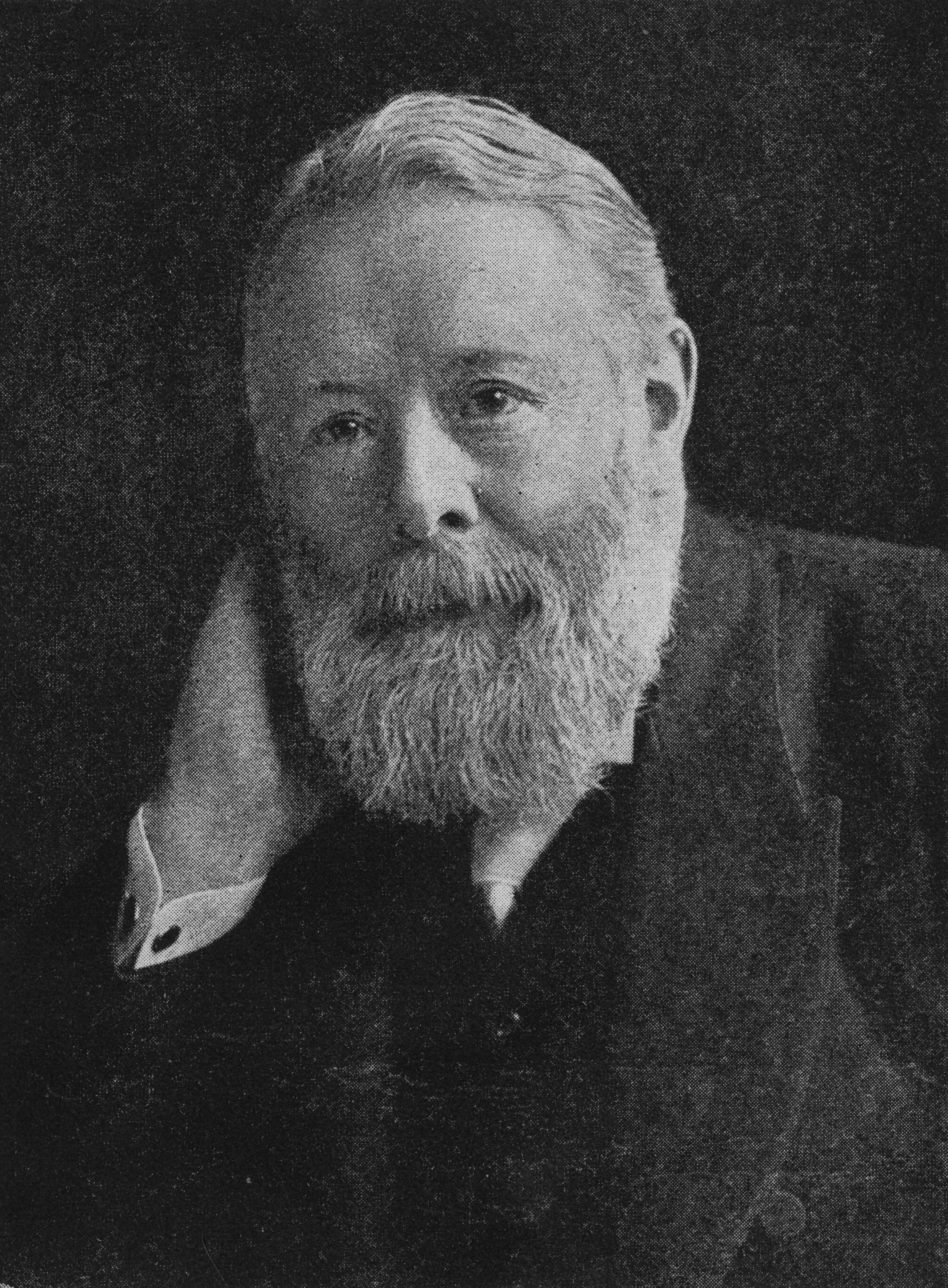
Meanwhile, the Royal Engineers, amateurs like all members of the FA at that time, were keen rivals of Wanderers. Founded by Major Francis Marindin, who had served in the Crimean War, he would later succeed Kinnaird as FA president. Their name too was eponymous, the team represented the Corps of Royal Engineers based at Chatham in Kent and, although sprinkled with members of the officer class, had a reputation for a burly, no-compromise approach perhaps befitting their military background and one notably different to that of Wanderers. Unsurprisingly, as an army club, their teamwork was considered their strength. They were noted for passing the ball between players, called “the combination game”, rather than dribbling the ball forward or kicking upfield and chasing, the tactics employed by most of their opponents, and the Engineers went into the match as 7-4 on favourites.
A meagre crowd of 2,000 gathered on 16 March 1872 at the Oval. It was a cold Saturday, admission was a shilling, the pitch was in the middle of the cricket field making viewing from the stands troublesome and there were no nets or crossbars on the goals. Tony Collins, a professor of sports history at De Montfort University, explains that cricket grounds often hosted football clubs in that era. “Cricket was considered the primary sport, and football was played in winter to keep the club’s players fit,” he says. “Standalone football clubs with their own grounds only emerged nearer the end of the century.”
Football was not the drawcard it is today. While clubs in the north of England had started to attract larger crowds, the game in the south was still considered an elite pastime and the 2,000 who did attend were “well-to-do and upper middle class” according to Collins. “Most of them had been friends of the players at school or members of their families.” They were also able to afford the shilling entrance fee which Bell’s Life sports newspaper described as “exorbitant”.
Alcock captained Wanderers, playing in defence, while Marindin captained the Engineers. Many of Wanderers’ players would later go on to achieve positions in public life: Edgar Lubbock would become deputy governor of the Bank of England, Edward Bowen a schoolmaster at Harrow, Walpole Vidal – colloquially known as “the prince of dribblers”– would become a vicar, while numerous others played first-class cricket. By contrast the Engineers had seen active military service across the British Empire from India to Gibraltar and from Crimea to the Zulu Wars.
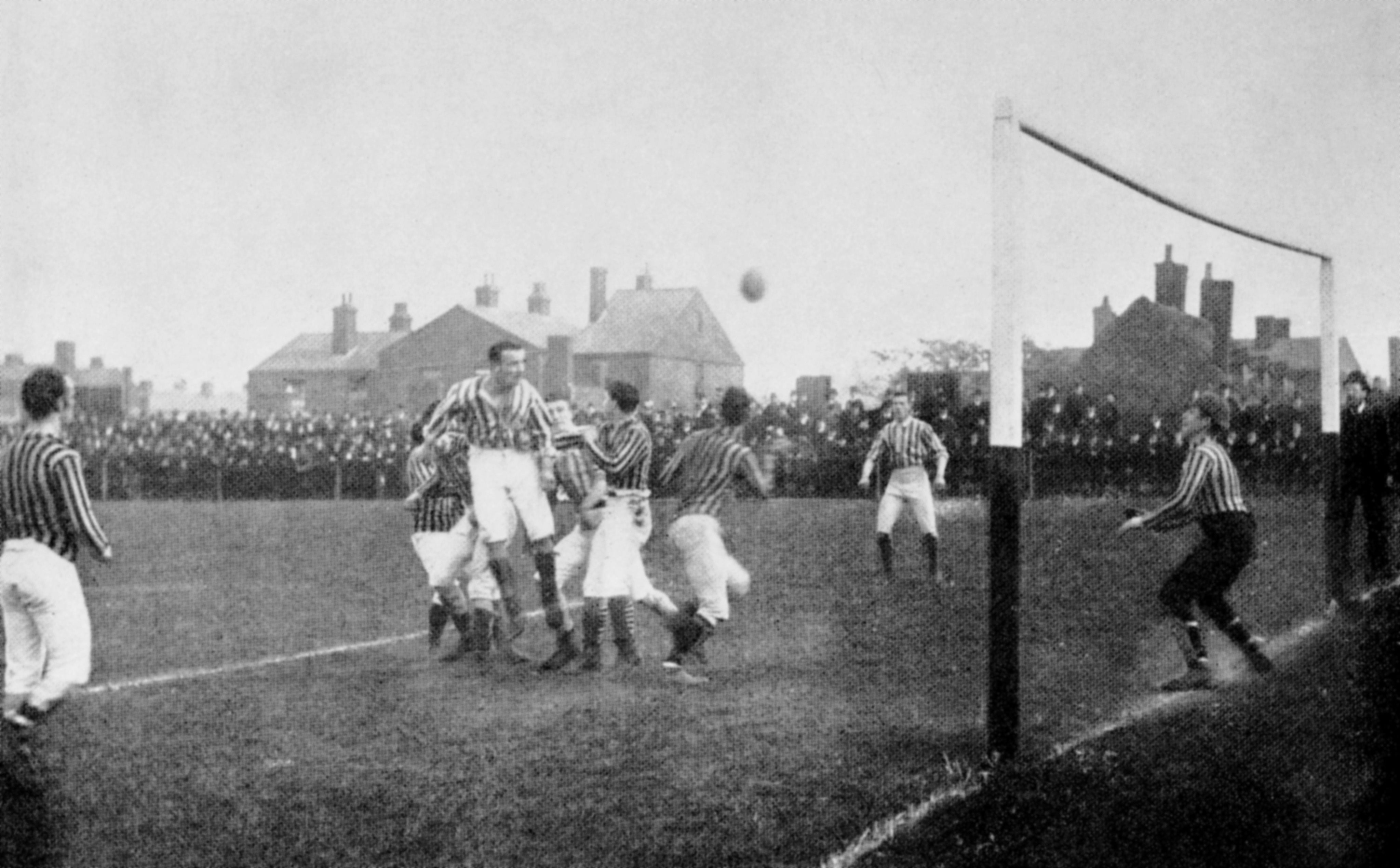
While teams of 11 were already established and matches were over 90 minutes, other rules differed somewhat from those of today. There were no penalties or free kicks – the amateur ethos that prevailed deemed that no gentleman would deliberately infringe the rules. Teams changed ends after each goal and, just as in cricket where a bowler must appeal to the umpire to claim a wicket, would-be scorers in football had to appeal for a goal. Throw-ins were taken by the first player to reach the ball after it had gone out of play, even if he was the one who had touched it last.
“Referees stood outside the field of play,” explains Collins, “while each team appointed an on-field umpire who conferred over decisions.” The referee was only called on if the umpires disagreed. For that first final Alfred Stair, head of the Inland Revenue, and – presumably because of his professional background – treasurer of the FA, was selected by the FA committee.
Alcock won the coin toss and chose to play with the prevailing wind behind his team. It may have paid off. Despite the emphasis of football in those days being on attack – Wanderers lined up with eight forwards, the Engineers with seven – the game was won by a solitary goal scored by Wanderers’ Morton Betts, playing under the pseudonym of AH Chequer, in the 15th minute. It was rumoured that Betts was worried he would be barred from playing in the final because he had already played for the Harrow Chequers club at the start of the competition, but rules introduced to stop such conflicts of interest were only introduced later. And, in any case, Harrow Chequers had forfeited their game without taking to the field.
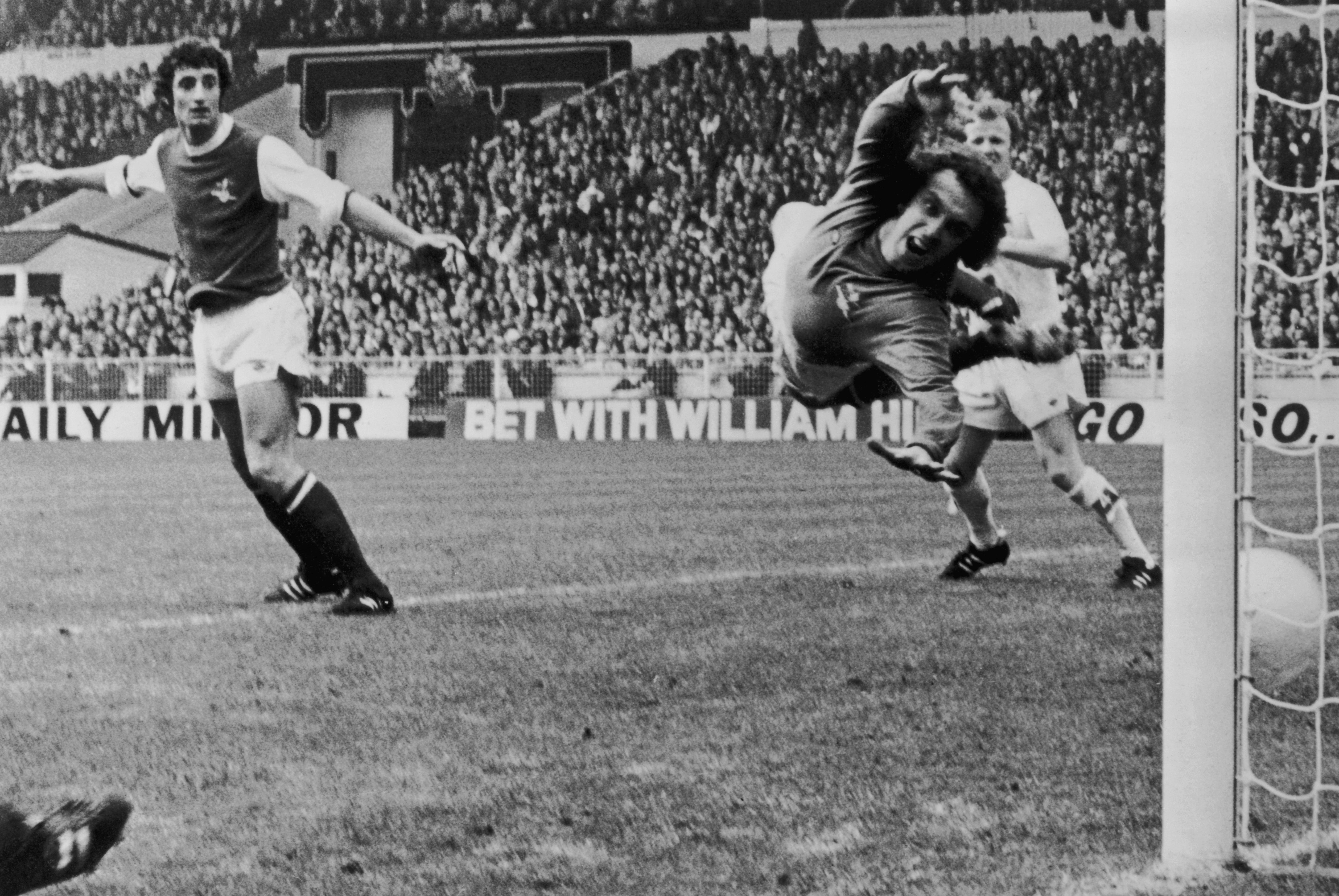
His goal was scored from an acute angle after a long dribbling run from Vidal and Wanderers thought they had added to their tally when five minutes later Alcock scored only for the umpires to disallow the goal for handball. The Engineers were under sustained attack, a situation made worse when forward Edmund Cresswell suffered a broken collarbone, but goalkeeper William Merriman had an outstanding game, blocking endless goal attempts by Wanderers. Despite ending up on the losing side, Merriman was described in contemporary reports as “perfect”. Those same reports said that Wanderers had offered up “some of the best play” ever seen in a football match to date and the game was “hard, fast, but fair”. Others pointed out that “The Engineers were by no means so formidable as had been anticipated.”
In the end, like Leeds United 100 years later, the team everybody hoped would lose, prevailed. Wanderers would go on to win the cup five times in total including three consecutive victories in the 1870s, a feat repeated only by Blackburn Rovers the following decade. Yet, apart from an annual fixture against Harrow School, Wanderers had pretty much disbanded by the mid 1880s. The Royal Engineers are still in existence, playing in the Army Football Association. After losing that first final they would play in three more, winning only one, in 1874-75.
Football rather quickly began to shift away from its public-school roots – rugby union and cricket taking its place in the sporting affections of the upper classes – and over the next couple of decades began to become rooted in British working-class culture. “Football’s popularity was encouraged by new entrepreneurs who bought land on which to construct stadiums and charge the public for entry, in turn breaking the amateur ethos and paying their players,” says Collins. Professionalism would be legalised by the FA in 1885 and the great clubs of working-class London and the north of England began to assert their superiority.
To modern viewers and modern sensibilities that first FA Cup Final would appear almost quaint, a Victorian throwback to the days when the codification of sport was being precipitated by the public schools. Their amateur ethos was part of a moral code underpinned by what was deemed “Muscular Christianity” – playing by the rules, with honouring God through sporting endeavour being of far more importance than victory.
One can only begin to imagine – come 1972 – what Billy Bremner, Norman Hunter and Jack Charlton might have made of that.




Join our commenting forum
Join thought-provoking conversations, follow other Independent readers and see their replies
Comments